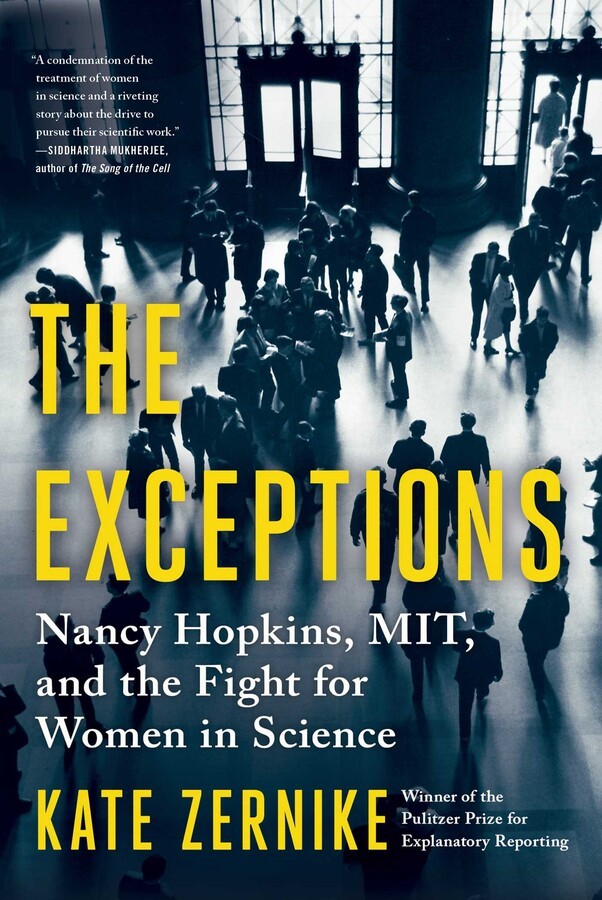The Exceptions
Benjamin Franklin Hall
427 Chestnut Street
Philadelphia, PA 19106
Thursday, September 7, 2023

In 1963, a female student was attending a lecture given by Nobel Prize winner James Watson, then tenured at Harvard. At nineteen, she was struggling to define her future. She had given herself just ten years to fulfill her professional ambitions before starting the family she was expected to have. For women at that time, a future on the usual path of academic science was unimaginable—but during that lecture, young Nancy Hopkins fell in love with the promise of genetics. With confidence in what she believed to be the equitable and purely meritocratic field of hard science, Hopkins embarked upon a career.
In 1999, Hopkins, now a noted molecular geneticist and cancer researcher at MIT, divorced and childless, found herself underpaid and denied the credit and resources given to men of lesser rank. Galvanized by the flagrant favouritism, Hopkins led a group of sixteen women on the faculty in a campaign that prompted MIT to make the historic admission that it had long discriminated against its female scientists. The sixteen women in support were a formidable group: their work has advanced our understanding of everything from cancer to geology, from fossil fuels to the inner workings of the human brain. And their work to highlight what they called “21st-century discrimination”—a subtle, stubborn, often unconscious bias—set off a national reckoning with the pervasive sexism in science.
From the Pulitzer Prize–winning journalist who broke the story, The Exceptions chronicles groundbreaking science and a history-making fight for equal opportunity. It is the “excellent and infuriating” (The New York Times) story of how this group of determined, brilliant women used the power of the collective and the tools of science to inspire ongoing radical change. And it offers an intimate look at the passion that drives discovery, and a rare glimpse into the competitive, hierarchical world of elite science—and the women who dared to challenge it.
Kate Zernike has been a reporter for The New York Times since 2000. She was a member of the team that won the 2002 Pulitzer Prize for Explanatory Reporting for stories about al-Qaeda before and after the 9/11 terror attacks. She was previously a reporter for The Boston Globe, where she broke the story of MIT’s admission that it had discriminated against women on its faculty, on which The Exceptions is based. The daughter and granddaughter of scientists, she is a graduate of Trinity College at the University of Toronto and the Graduate School of Journalism at Columbia University. She lives in New Jersey with her husband and sons.
